Korea is a land of contrasts. Ancient temples and palaces nestle into hillsides as high-rise apartment buildings spring up everywhere. It is one of the most wired, tech-savvy nations in the world, but is also filled with tradition-al markets and rice paddies. A long flight from the U.S., it requires only short hops to China, Japan, Thailand and other places in Asia.
"Korea is a beautiful country," said Lt. Gen. Joseph F. Fil, com-mander of 8th U.S. Army. "The people are so kind and courteous. It's just a wonderful country ... it's a hard-work tour, but it's not a hardship tour. It's a great place to be assigned. We seek to make this the dream assignment for Soldiers."
The days when Soldiers com-plained of dirt roads and few facilities are long gone. Today it is, many Soldiers say, a wonderful place to spend a year, or two or three. If Soldiers come unaccompanied, the tour length is one year, and if they receive command-sponsored tours, it's two years. Soldiers can also receive assignment-incentive pay for extending and remaining a maximum of three years.
"I requested it," said mechanic Spc. Lonnie Fletcher, stationed at Yongsan Garrison in Seoul. "I heard it was the assignment of choice. Why not go to a different country' I'm in the Army, so I might as well go somewhere I've never been before."
He and his wife, Sgt. Delaina Lynn Fletcher, said they enjoy the local culture in Seoul and urge Sol-diers to spend time off post. Local shopping districts like Itaewon and the Namdaemun market seem to be particular favorites of Soldiers, as is traditional Korean barbeque, which diners grill right at the table.
"I love it here. I could walk around for hours. Sometimes we catch the bus and go eat and shop and walk around. You see people, meet people," said Pfc. Kelly Mitchell, a human-resources specialist at Yong-san.
Seoul has extensive subway, train and bus systems, with stops stretch-ing about an hour north and south, convenient to camps Casey and Humphreys. Free military buses also connect outlying U.S. installations with Yongsan, so getting around is fairly easy, Soldiers said, even though enlisted Soldiers arenAca,!a,,ct allowed to have cars.
Morale, welfare and recreation offices; the United Service Organiza-tion; and Better Opportunities for Single Soldiers offer subsidized tours of local attractions, the Demilitarized Zone, cities like Beijing and Tokyo, Jejudo Island and the beach to help Soldiers take advantage of living and working in another country.
Aca,!A"We want Soldiers to have a wonderful time while they are here,Aca,!A? said Fil. Aca,!A"Learning about Korean culture. Developing relationships with our Korean neighbors. Getting out and exploring all the beauty, scen-ery and culture of Korea. Exploring the Orient. We want to create every single opportunity for our Soldiers to do that.Aca,!A?
The post schools teach service-membersAca,!a,,c children about KoreaAca,!a,,cs language and the culture, and MWR offers Hangul-language classes to Soldiers as well; some Soldiers even study it on their own. Others, like Pfc. Jose Burgos, volunteered for duty in Korea to explore a specific aspect of the culture.
He has a black belt in tae kwon do, a Korean martial art, and wanted to study it with Korean teachers. He trains at the Yongsan MWR center three days a week, and twice a week off post. He said he found that tae kwon do is far different in Korea than in America Aca,!" far more philosophi-cal and important to overall physical fitness.
Because so many Soldiers are new to the Army and foreign assign-ments, the 8th U.S. Army and 2nd Infantry Division ensure Soldiers and families undergo cultural-awareness training as part of their initial orienta-tion. Soldiers are also encouraged to pair up with Korean Augmentees to the United States Army. KATUSAs are fulfilling their compulsory service to South KoreaAca,!a,,cs army, but are serv-ing in American units. They eat, live and train with their U.S. counterparts.
KATUSAs, some of whom have lived or studied in the United States, also show American Soldiers the ropes: explaining menus, the exten-sive subway system and often acting as unofficial tour guides. Soldiers and KATUSAs also learn about each otherAca,!a,,cs languages and beliefs.
Aca,!A"The first thing I ask them is what they think will happen when North and South Korea are unified again, what their reaction will be' They hope they unify because some of their ancestors are still in North Korea. ThatAca,!a,,cs pretty much the first thing they tell me,Aca,!A? said Spc. Christopher Perez Nieves, whose roommate at Yongsan is a KATUSA.
He added that he was horrified when he first learned about his as-signment because he had heard so many bad things about Korea, but that he has been proved wrong.
Aca,!A"It is a great assignment,Aca,!A? Nieves, a systems analyst, said. Aca,!A"When I first got here, people were great to me Aca,!" especially the Koreans. The way they live is magnificent.Aca,!A?
All Soldiers and family members can expect to work and live with Koreans even if they never leave the installation. Leaders therefore stress that everyone, from private to general to spouse, is an ambassador for the United States and can have an impact on the ArmyAca,!a,,cs relationship with the Korean people.
To help build continuing goodwill and shared understanding between American Soldiers and citizens in local communities, each installation and command in Korea runs a Aca,!A"good neighborAca,!A? program. It has three pil-lars: community relations, military-to-military operations and Korean cultural awareness.
Aca,!A"Since the end of the Korean War, we have developed a relationship that stretches across generations,Aca,!A? said Lt. Col. Glenn Tolle, director of the 2nd Inf. Div.Aca,!a,,cs Good-Neighbor Program at Camp Red Cloud. Aca,!A"We have older individuals who remember the con-tributions of the United States, and then we have the younger generation. Through the program, we show them that the United States is a partner in the peace of Korea. The program also gives our families a chance to partici-pate in the local community.Aca,!A?
Commanders at different levels have advisory groups of Koreans, units partner with units from the Ko-rean army, and Soldiers volunteer in orphanages and teach English in local schools. Units might also partner with a local university or high school to sponsor such programs as hiking trips or basketball tournaments for the Soldiers and students. Local Korean communities often reciprocate by hosting concerts or other events for the Soldiers.
Aca,!A"All a Soldier has to do is partici-pate once in an English-teaching pro-gram in a local elementary school,Aca,!A? Tolle said. Aca,!A"The children become attached to the Soldiers, and there is a bond that the Soldiers recognize with the local community, and they want to participate. Once they get their feet in the door Aca,!A| they find themselves part of something thatAca,!a,,cs truly bigger than themselves. They have a sense of satisfaction in that they have con-tributed to the local U.S. and ROK relationship, and they make good friends.Aca,!A?
Aca,!A"This is an exciting time to serve on the Korean peninsula,Aca,!A? said Fil. Aca,!A"It is a very rewarding tour, in a place that is wonderfully accommodating to Americans. They want us here. It is a real mission and a very high quality of life.Aca,!A?
<b>Getting Soldiers Out of the Barracks With BOSS</b>
With the majority of American Soldiers in Korea either single or unaccompanied, the Army depends not only on morale, wel-fare and recreation activities, but also on a program called Better Opportunities for Single Soldiers to get them out of their barracks and away from their video games, and also away from excessive or underage drinking or clubbing, according to outgoing Camp Red Cloud BOSS coordinator Staff Sgt. Lucia Gonzalez.
Chaired mostly by young enlisted Soldiers, BOSS has three pillars: recreation, community ser-vice and well-being. Its members sponsor activities from karaoke nights to barbeques to beach weekends to trips around Korea. Soldiers involved in BOSS help communities pick up trash, visit orphanages and even helped clean up the oil spill at Taean in Janu-ary 2008.
Aca,!A"When I first got here,Aca,!A? Gon-zalez said, Aca,!A"there werenAca,!a,,ct many things to do with our free time. So when I got involved, I wanted to have a lot of events and tours, a lot more things for the Soldiers to go out and do instead of just going out to a club.Aca,!A?
Representatives from the units in a command meet with the BOSS committee biweekly to talk about what Soldiers want, and BOSS often holds fundraisers so the activities are as low-cost as possible. MWR also provides a lot of BOSS funding, Gonzalez said. Aca,!" Elizabeth M. Lorge
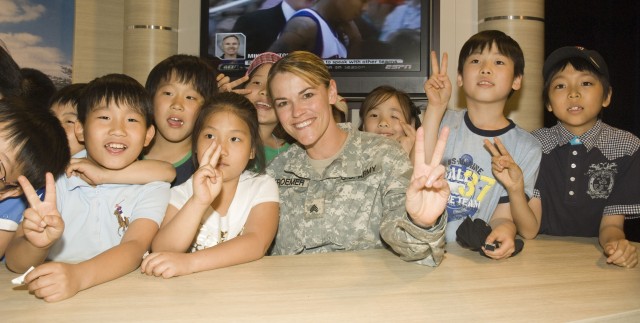
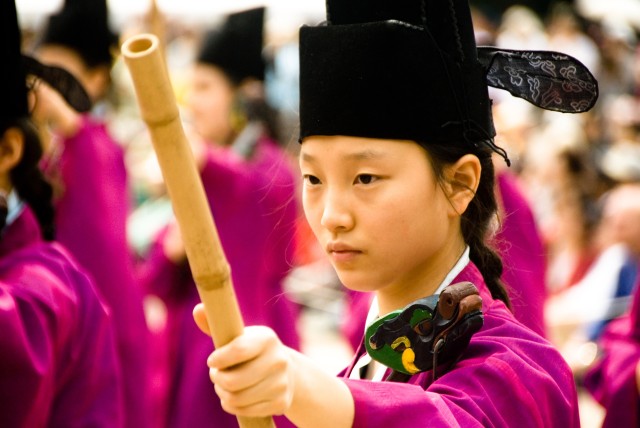
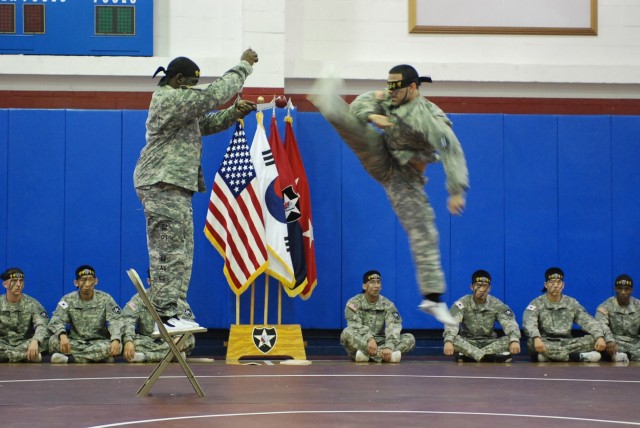
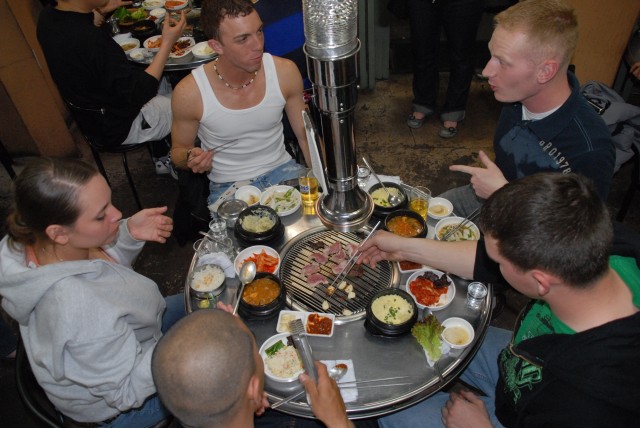
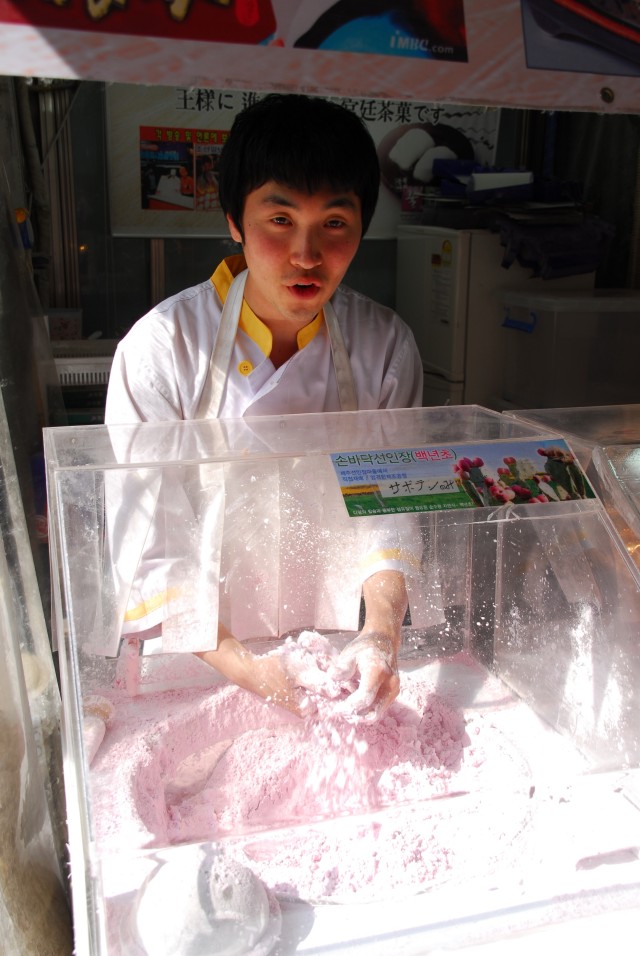

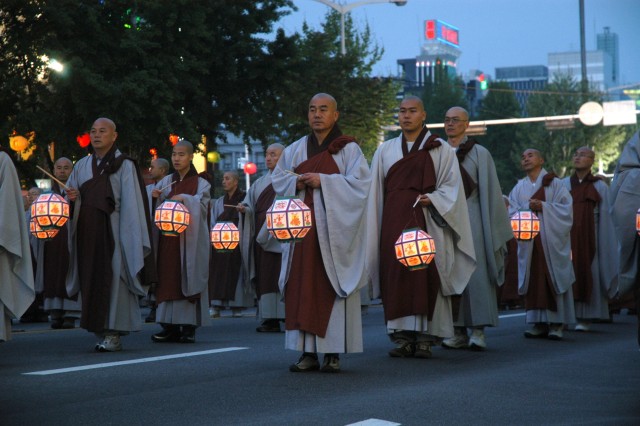
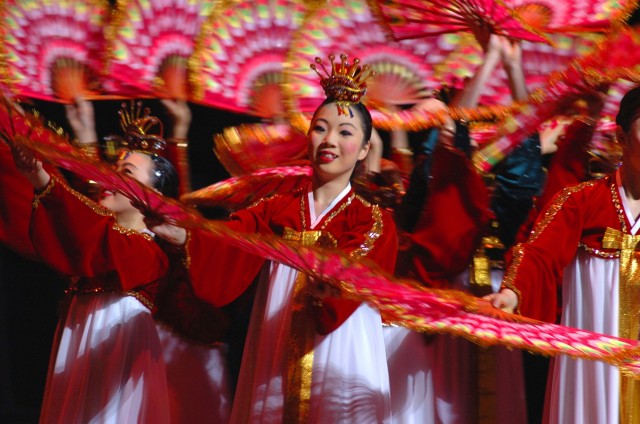
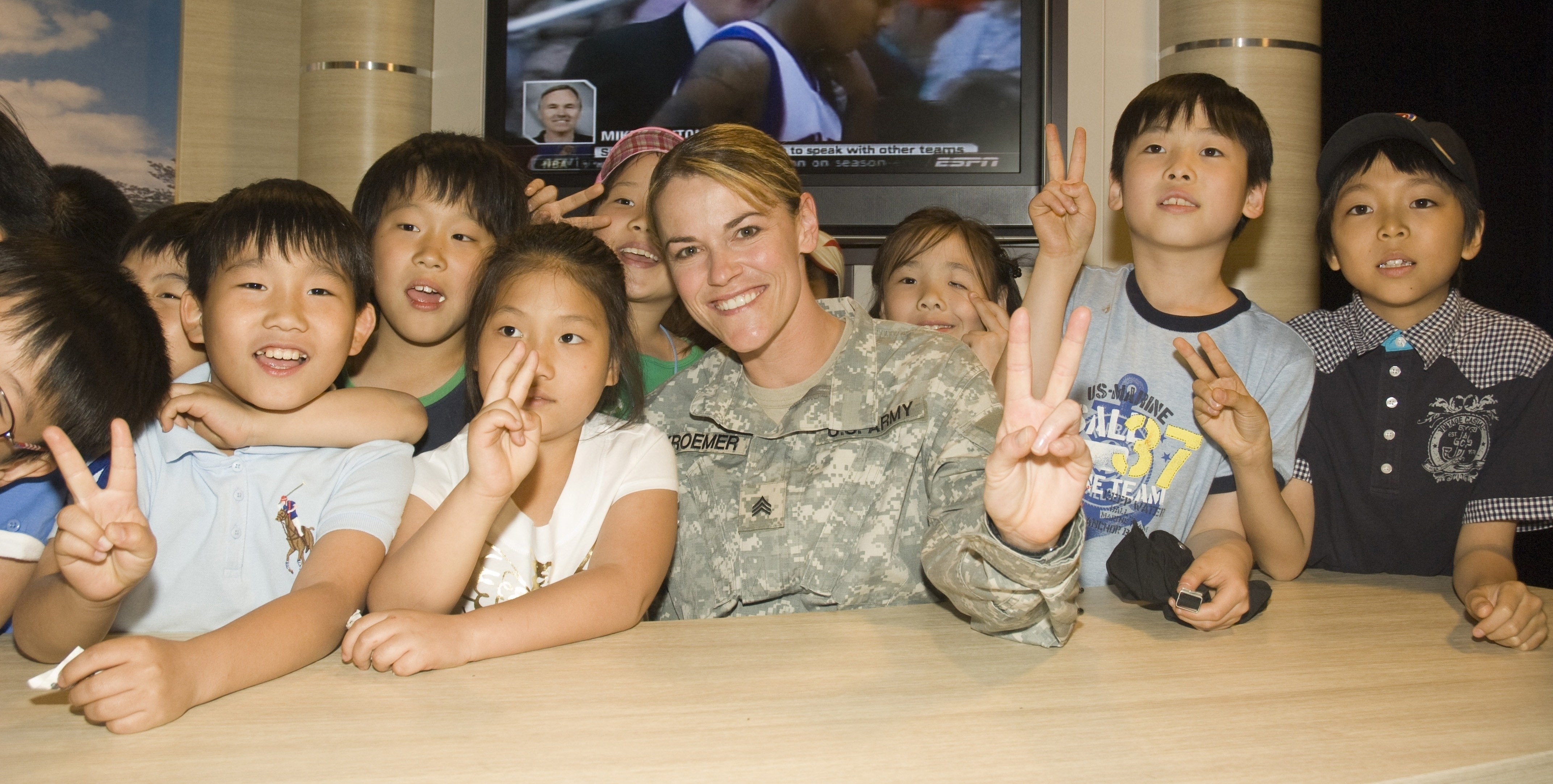
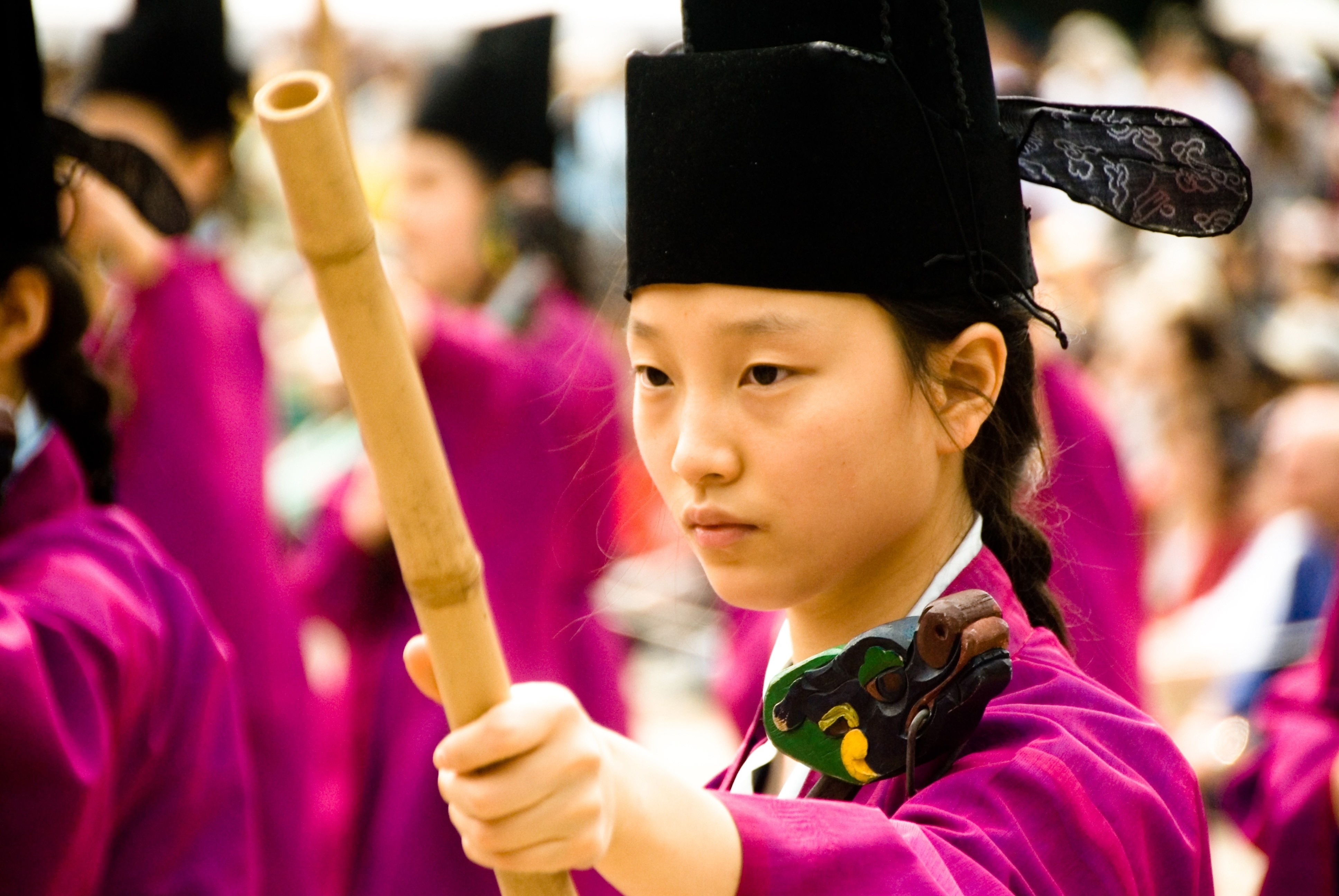
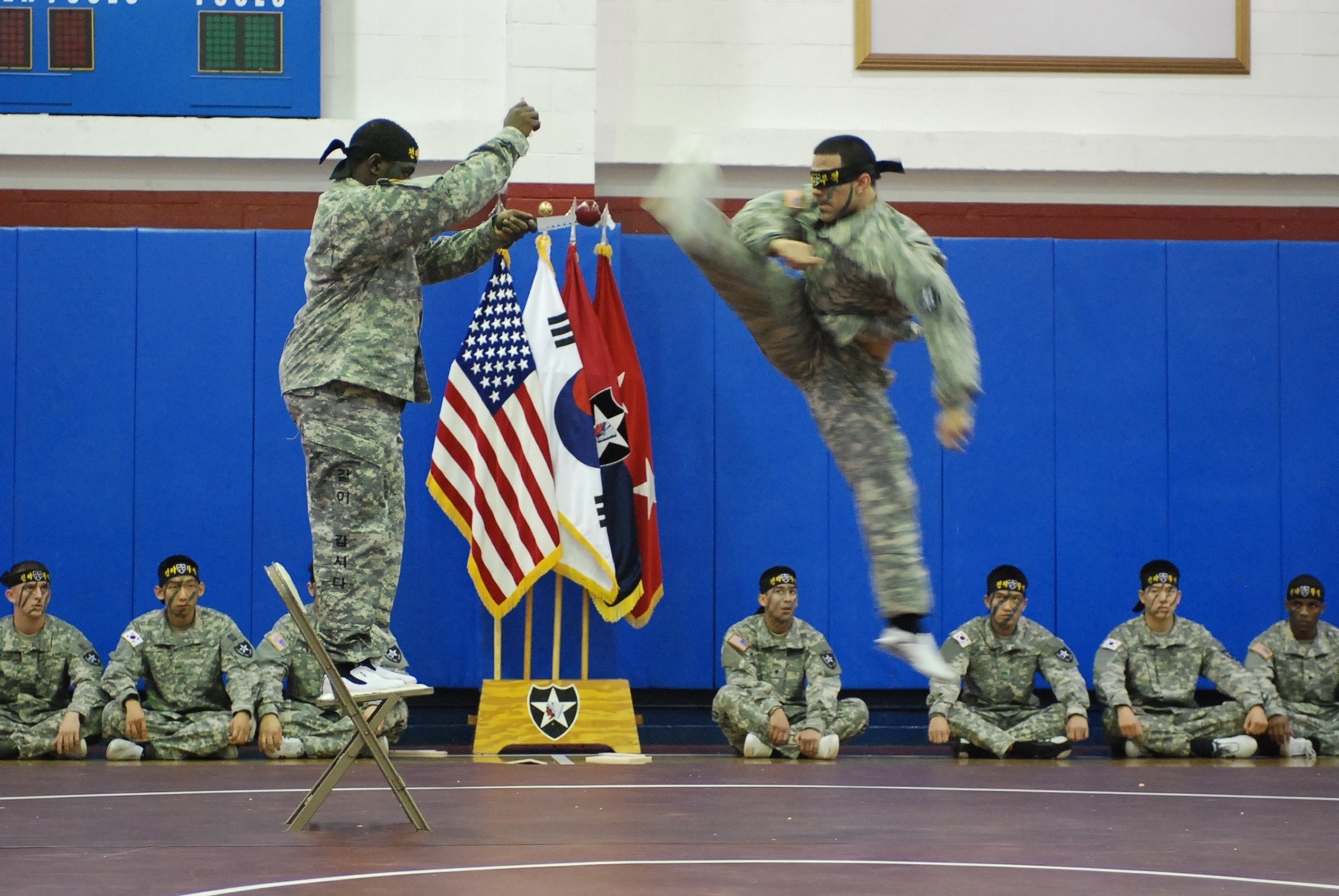
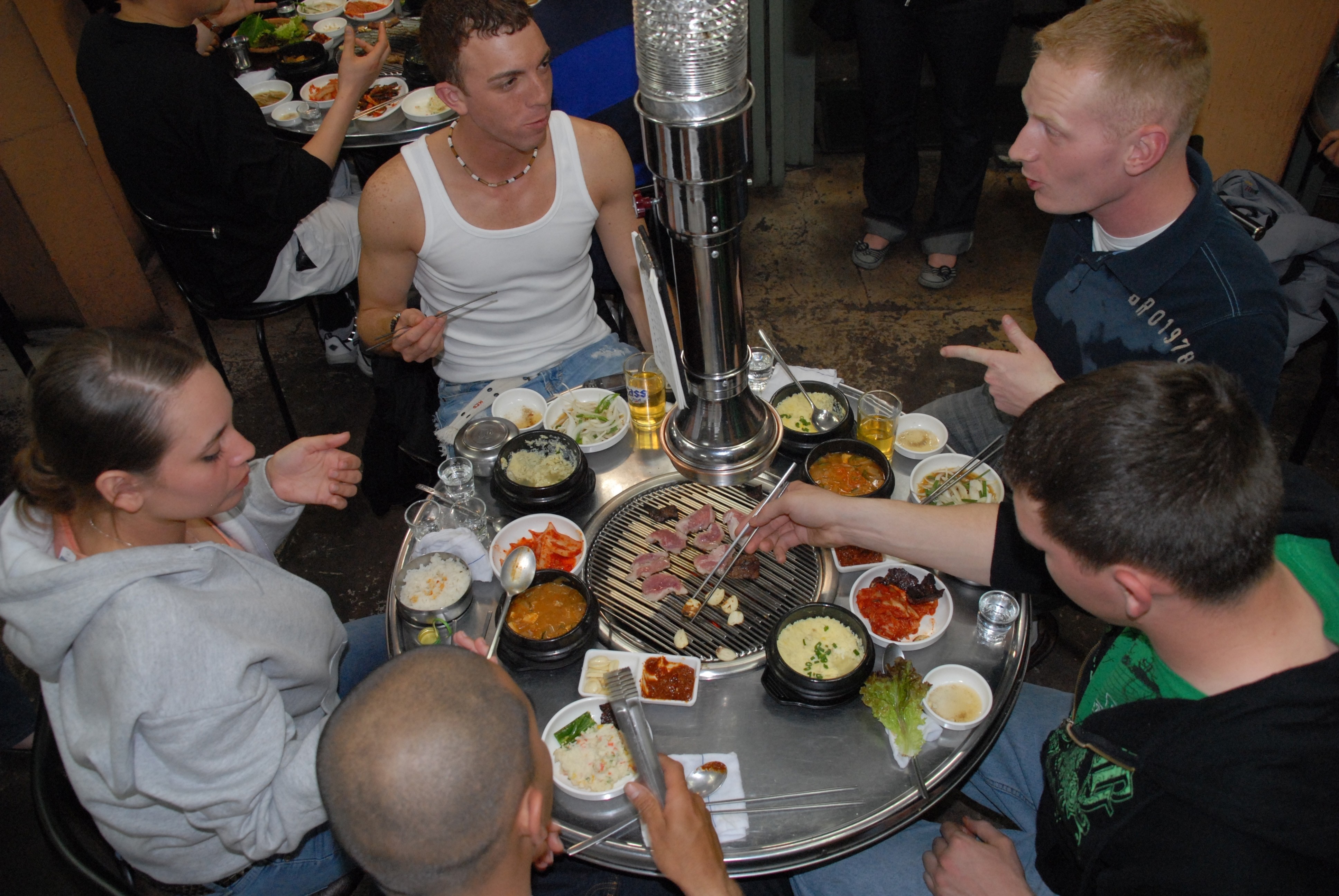
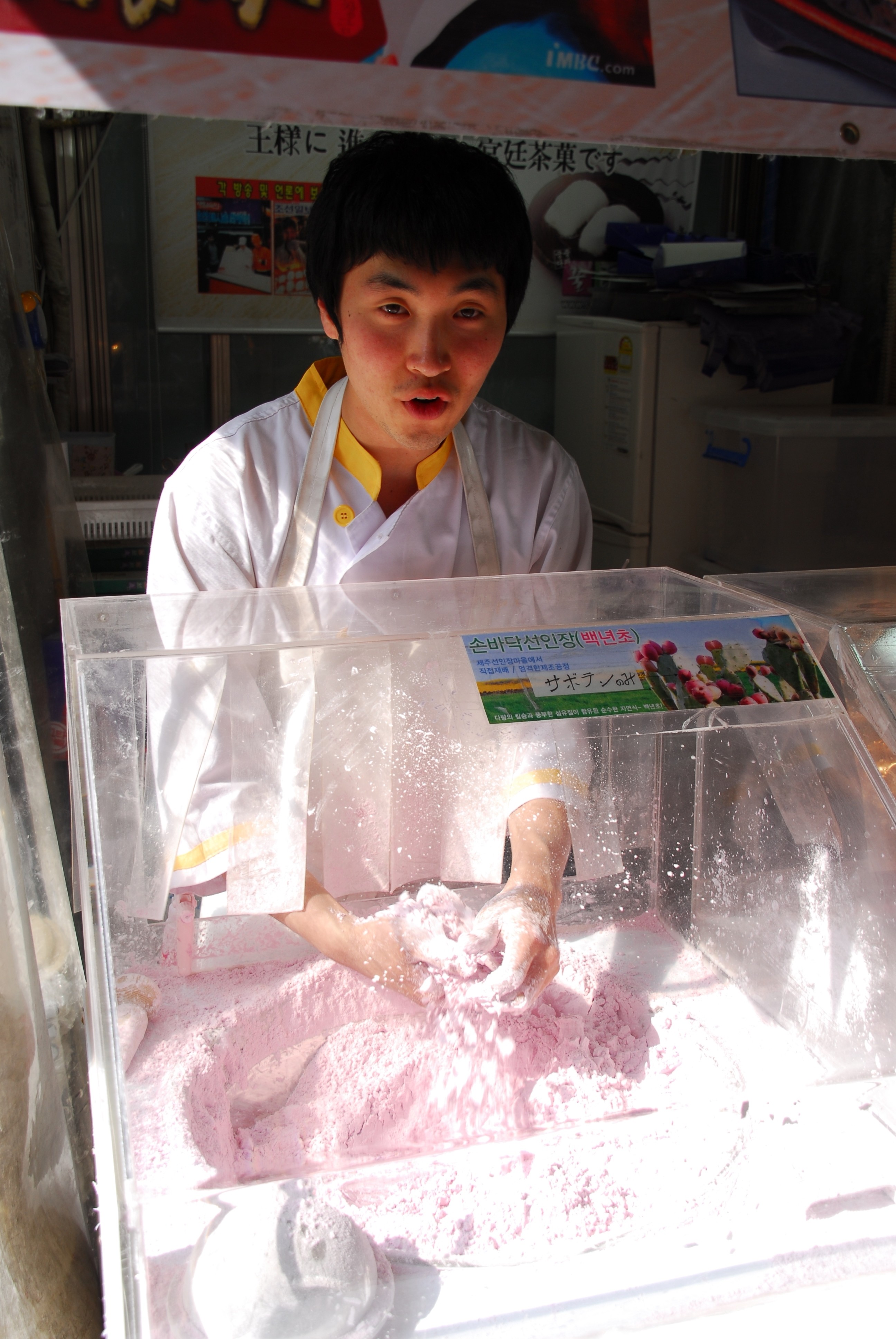

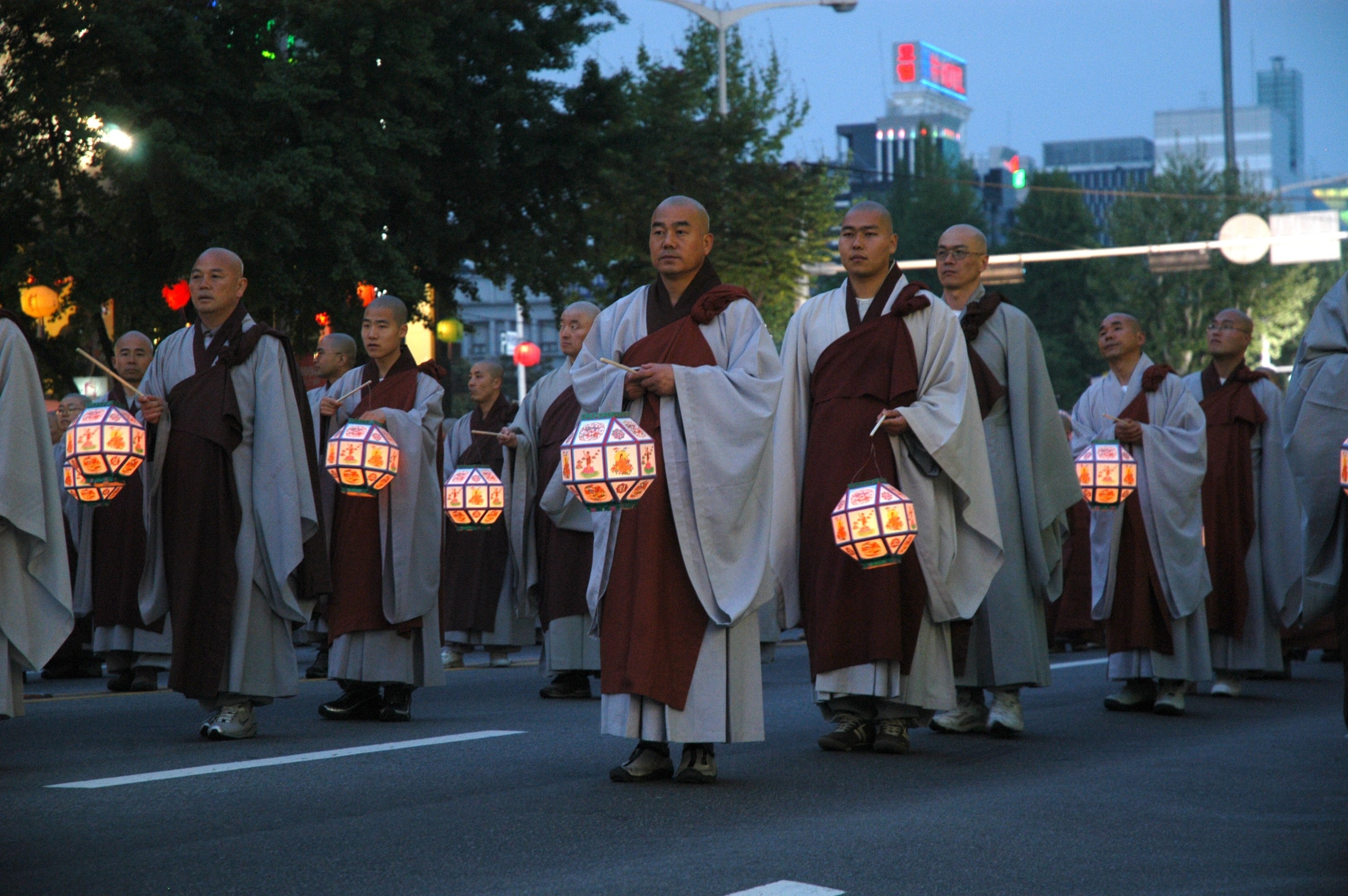
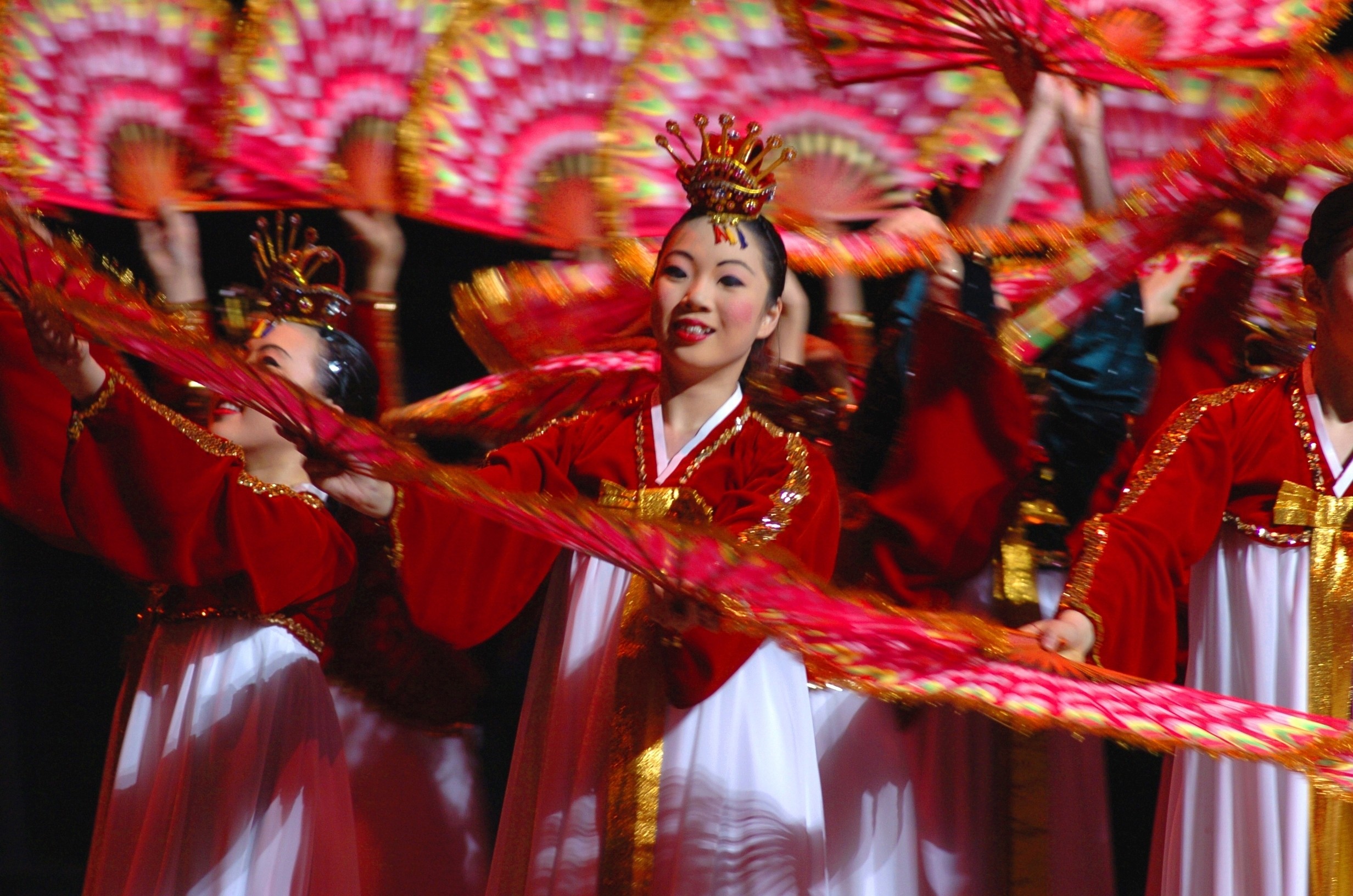
Social Sharing